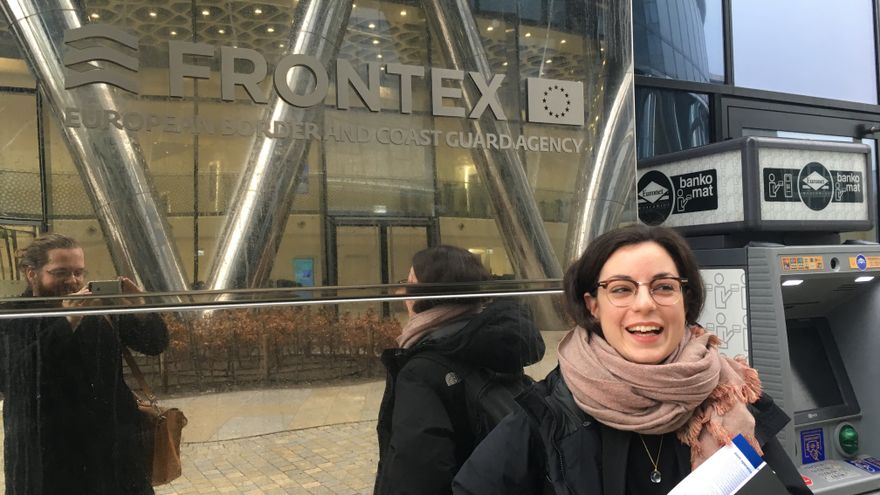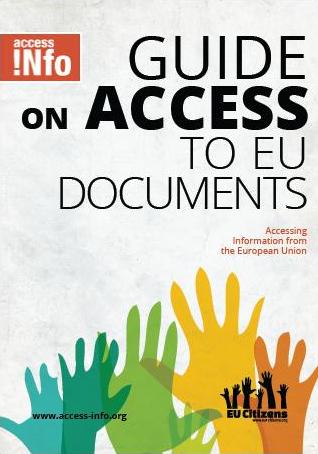General Court decision draws a line under 22-month litigation saga between activists and EU border protection agency and indicates its willingness to protect access to justice in the field of access to documents.

On 26 March, the General Court delivered its follow-up order in Izuzquiza and Semsrott v Frontex. The case formed the closing piece in a 22-month court battle over refused access to documents, between the two transparency activists and the Warsaw-based European Border and Coast Guard Agency, better known as Frontex. The latest court case concerned the question of legal costs previously charged by Frontex, and which the applicants had refused to pay, arguing the charged fees were baseless and primarily intended to create a chilling effect on future probes by civil society activists. The General Court slashed the amount originally charged by Frontex by more than half – far closer to the sum that the applicants considered reasonable.
Background to the case
The most recent court ruling (case T‑31/18 DEP) follows in the tracks of an earlier access to documents ruling of 27 November 2019 (T‑31/18), which the activists had lost against Frontex. This case concerned a request for access to details of the vessels engaged in Frontex’ Joint Operation Triton 2017, that had patrolled the Union’s sea borders in the Mediterranean Sea, that Frontex had turned down. The applicants brought an action against thus decision early 2018. After the court turned down Frontex’ application to deal with the case behind closed doors (“in camera”), a public hearing took place early July 2019. By the time, Frontex’ growing role in European border protection and security politics had attracted growing attention in the media, and the case had some resonance in media, including interviews with applicants in their national press (Spanish paper El Diario for Luisa Izuzquiza, and Correctiv/ARD for Arne Semsrott). Nevertheless, the court eventually dismissed the applicants’ pleas, finding that Frontex had acted within the law by denying full access to the documents, and justifying this refusal with reference to the public interest in public security. The court assigned the legal costs to the losing party.
The only clear loser in this case seems to be Frontex, whose enforcement attempt to recuperate the large legal bill, as well as its attempt to suppress access litigation against itself, have largely fallen apart.
Frontex would have marked a significant legal victory for its cautious position on the security v transparency scale, if it had left the issue at that. However, it soon emerged that Frontex decided to press the matter further, charging the losing side a bill for legal fees of €23,700. Given that this sum is extraordinarily large compared to previous public interest litigation cases in the area of access to documents, the applicants were taken aback by this seemingly hostile act of Frontex. Moreover, given that the applicants had litigated on personal title, they argued that they lacked the means to pay this unexpectedly large bill. Frontex however did not relent, taking Izuzquiza and Semsrott to court over the unpaid bill at the end of 2020.
The court order
The latest judgment was thus solely concerned with the question of the assignation of legal costs. While Frontex had originally charged €23,700 in its court application it had already lowered this sum to €19,048 for services provided by its own staff, an external legal counsel, and an expert advisor. The applicants countered that the sum was exaggerated and unsubstantiated, arguing that a considerably lower sum €6,606 would be reasonable. The court eventually settled the matter by lowering the costs that Frontex was allowed to charge at €10,520.
The court dealt with the question of legal fees pragmatically, developing its own ‘common-sense’ criteria of fairness.
The question of recoverable legal costs which is body of case law that has largely developed separately from the access to documents question. Here however, it became part of the access case law. The accent in the Frontex case shifted from court review of the substantive question of how much discretion the executive should be allowed (by keeping information secret) to the systemic question of access to justice. By all standards, the court dealt with this question pragmatically, developing its own ‘common-sense’ criteria of fairness. This was necessary, as EU law does not provide clearer standards of assessment to decide on such matters:
[I]n the absence of provisions of EU law laying down fee scales, the Court must make an unfettered assessment of the facts of the case, taking into account the purpose and nature of the proceedings, their significance from the point of view of EU law as well as the difficulties presented by the case, the extent of the work generated by the dispute for the agents or advisers involved and the financial interest that the parties had in the proceedings. […] The amount of the costs recoverable by way of lawyers’ fees in the present case must be assessed in the light of those considerations.
What followed was a detailed review of the legal bill presented by Frontex, in light of the substance of the case.
[A]s regards preparing the defence, the 45 hours put forward do not appear to be objectively necessary for the purpose of the proceedings before the Court, since the proceedings in question are not unusually complex for a case brought before the Court.
By way of a procedural criterion, the court also noted to lack of reasons provided by Frontex to justify certain items on the bill.
As regards the expenses claimed for Frontex’s agent, it must be noted that there is no evidence in the file as to the purpose of the alleged Brussels mission or why it was necessary. In those circumstances, the expenses claimed by Frontex in that respect should not be regarded as recoverable.
All in all, this led the court to dismiss Frontex’ legal bill charged, and to set it at the above-mention sum of €10,520.
Losing a battle, losing the war?
The outcome of the courts decision provides a mixed bag. The EU Observer described Frontex as having been found “guilty” of inflating its legal bill. Meanwhile, Access Info Europe, which has become something of a spokesperson for the European NGO community on matters of transparency, expressed its cautious satisfaction, although it reiterated its position that Regulation 1049/2001 on access to documents should be revised to include a ceiling to chargeable legal costs, in order to protect public interest litigation.
The only clear loser in this case seems to be Frontex, whose enforcement attempt to recuperate the large legal bill as well as, seemingly, its attempt to suppress access litigation against itself, have largely fallen apart. Nevertheless, Frontex was quoted as welcoming the recent decision, emphasising that the applicants had lost the substance of the access case itself.
Instead, beyond losing a battle, Frontex appears to be on its way to lose the war of public relations optics over the question of accountability. This was already apparent in the concerted response of civil society after Frontex had sent its bill for legal fees to Izuzquiza and Semsrott, which was quickly denounced in a petition signed by over 40 NGOs. A petition opened to individual citizens to “let Frontex know Europeans don’t respond well to bullies” (sic) was signed by over 87,000 people. Eventually, the matter became politicised when the European Parliament sent questions to designated Commissioner Johansson.
The unfortunate optics of Frontex as a repressive and closed super agency was further strengthened by its failed attempt to keep its catering bill for an internal annual event under the fold, piling on the recent stream of critique for the current Commission’s powerful and well-funded public security poster child.
Thus, while the court indeed showed its willingness to roll up its sleeve-shirts to review and protect the fairness of legal bills in access cases using a hands-on approach, the episode has only helped to place the question of more formally regulating the matter of legal costs on the table.

